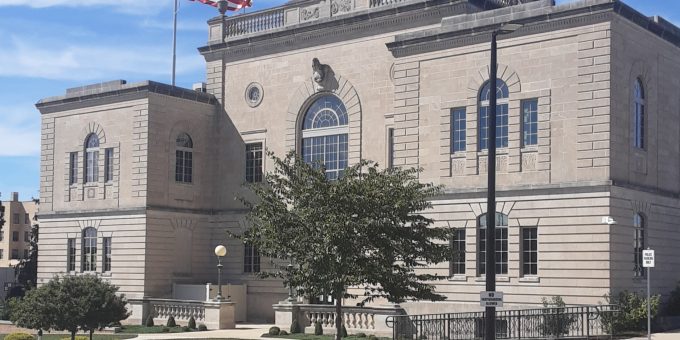
BEDFORD – Lawrence County Juvenile Judge Anah Gouty requested the commissioners Tuesday morning to use a $15,000 grant awarded to the court to allow a mediator to help terminate parental rights cases.
These cases result from an unsuccessful Children in Need of Services (CHINS) case. When a CHINS case has progressed with little, limited, or no participation or compliance by the parents, the Department of Child Services (DCS) will file a Termination of Parental Rights (TPR) petition.
The court provides a mediator where the biological parents, their attorney, the Guardian Ad Litem representing the child, and the foster parents who are interested in adopting the child will reach an agreement providing the child or children with a permanent solution.

“These are highly emotional cases,” added Judge Gouty. “Mediation is beneficial to all involved.”
Many times, the children in these cases had been living with the foster family for years, but they do know and remember their biological family. Foster parents recognize that acknowledging the bond between the children and the biological parents may, in some circumstances, be beneficial for the children and their personal development. Foster parents are motivated to move quickly on the adoption to create permanency in the child’s life, eliminating DCS involvement and subsequent time commitments; the Consent to Adopt allows adoption to move forward much faster than waiting for the TPR trial.
The discussion helps the parents recognize the potential outcome of failing to comply with previous court orders, like classes or mental health or substance abuse treatment, and the likely outcome of a TPR trial.
The biological parents are frequently feeling angry, upset, defensive, and sad, and their behavior in the mediation will reflect those feelings.
Most biological parents do not want to “give away” their children. Many biological parents recognize they cannot adequately parent these same children. Frequently, the biological parents will request an opportunity to continue or begin visits and contact with the children as a condition of Consenting to Adoption, creating more of an “open” adoption.
Foster parents also have decisions to make on behalf of the children, considering the child’s age, prior and current relationship with the biological parents, the foster parents’ relationship with the biological parents, and the biological parents’ conduct.
By reaching an agreement, they may be promising to maintain contact with the biological parent in some form or another until the child turns 18.
DCS usually explains their position, outlining how the parent has failed to complete the court-ordered requirements and that adoption would be in the child’s best interest. The Family Case Manager and service providers will speak about what has been going on in the case, visitation, and what the biological parents have or have not done to justify the termination of their rights.
The Kids’ Voice representative attends to speak on behalf of the child. Kids’ Voice represents the Guardian Ad Litem. The GAL has met with the child in multiple settings and observed the child’s interaction with biological and foster parents. Their position is purely what is best for the child, although it may not be what the child requests. In many cases, the biological parents have had limited contact with the foster family. Mediation asks the biological parents to put the needs of the children at the forefront, but sometimes, it is difficult for them to see any more than a threat.
Sometimes, the foster family is an extended member of their family, bringing family drama and prior relationships to the table. The foster parents attend and are asking the biological parents to consent to their adoption of the children. An attorney represents all parties, although, on occasion, the foster parents have not yet hired counsel.
The ultimate goal is to reach an agreement under which the biological parents consent to the adoption of their children by the foster parents. Assuming an agreement is reached, the biological parents will execute a Consent to Adopt, which includes enforceable conditions. This consent is frequently drafted and provided by the attorney for the foster parents but occasionally falls to the biological parent’s attorney or the mediator.
Once the agreement is signed, the TPR case is terminated, and the foster parents can continue on their path to adoption. The dismissal of the TPR ends what began as a CHINS case for the biological parents. If the case proceeds to a TPR trial and DCS is successful in terminating the parent’s rights, biological parents lose all rights, including any updates or contact with the children.



